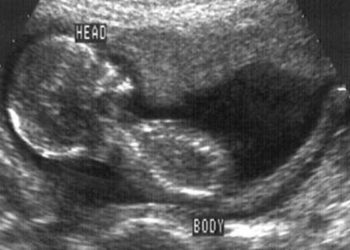Deep learning algorithm enables accurate and fair prediction of post-liver transplant risk factors
1. A transformer deep learning algorithm is developed to determine accurate prediction of five major risk factors in patients’ post-liver transplantation
2. Fairness metric determined to refine algorithm to more equitably distribute liver transplants across demographics
Evidence Rating Level: 2 (Good)
Study Rundown: Liver transplantation is a life-saving procedure for patients with liver diseases. Yet, complications can arise from liver transplantation, including infection and cancer. While clinical tools, such as the Mayo End-Stage Liver Disease (MELD) score, exist to determine the survival of patients without liver disease, fewer still are available to determine the risk profile of patients after they have received a transplant. Additionally, there is a pressing need to determine how to fairly allocate organs, including livers, across demographic groups while also accurately assessing the risk profile across several outcomes.
This study by Li and colleagues attempted to develop a deep learning-based algorithm to predict post-liver transplantation outcomes by making use of a large set of demographics, clinical, and biomarker data from 160,360 patients who received a liver transplant from the years 1970 to 2018. Specifically, this study developed a transformer-based multi-task algorithm to predict risk profiles for five types of risk factors that influence post liver-transplant outcomes: malignancy, diabetes, rejection, infection, and cardiovascular complications. The authors additionally developed a fairness metric based on a disparity index to help optimize outcomes while also ensuring more equalized odds across demographics.
Finally, the authors used their algorithm to prioritize features, either demographic or biomarker data, that highly impacted particular outcomes. Not surprisingly they found body mass index (BMI) was highly influential in the outcome of diabetes. Yet, the authors also highlighted that without including a fairness metric, age was an influential demographic variable in determining the cardiovascular outcome. In sum, the authors develop an algorithm that optimizes multiple outcomes and ensures fairness in predicting post-liver transplant risk factors.
Click here to read the study in the Journal of Biomedical Informatics.
Relevant Reading: Artificial intelligence, machine learning, and deep learning in liver transplantation
In-Depth [retrospective cohort study]: Li and colleagues developed a novel deep learning algorithm, based on a transformer neural network architecture, to predict post-liver transplantation outcomes more accurately and fairly. The authors employed a large cohort of 160,360 post-liver transplant patients using data from the United Network for Organ Sharing (UNOS). Using demographics, lab results, and follow-up data, the authors learned an algorithm to predict five types of outcomes best.
The authors measured the success of their algorithm by determining the area under the receiver-operator curve (AUROC) and the area under the precision-recall curve (AUPRC). The study found superior performance metrics using the multitask framework (AUROC = 0.66, AUPRC = 0.0753) as compared to an equivalent single-task framework (AUROC = 0.6148, AUPRC = 0.0597). The authors also highlighted that the multitask framework achieved a 39% reduction in task disparity, namely the degree to which one of the five risk factors is more heavily weighted.
The authors further modified their model by incorporating a fairness-achieving metric to ensure parity across demographic groups. Introducing these metrics into their deep learning model reduced the demographic parity difference (DPD) metric from 0.1642 to 0.0039 and the equalized odds difference metric from 0.3058 to 0.0134.
In conclusion, the authors develop and test a transformer-based multitask, fairness-balancing deep learning tool to accurately predict post liver-transplantation outcomes. This work opens avenues for further research into artificial intelligence and deep learning methods that aim to ensure fairness while also making clinically meaningful predictions.
©2024 2 Minute Medicine, Inc. All rights reserved. No works may be reproduced without expressed written consent from 2 Minute Medicine, Inc. Inquire about licensing here. No article should be construed as medical advice and is not intended as such by the authors or by 2 Minute Medicine, Inc.









